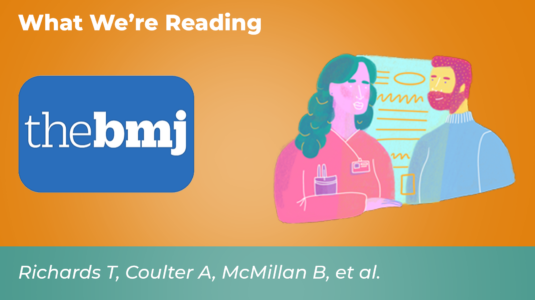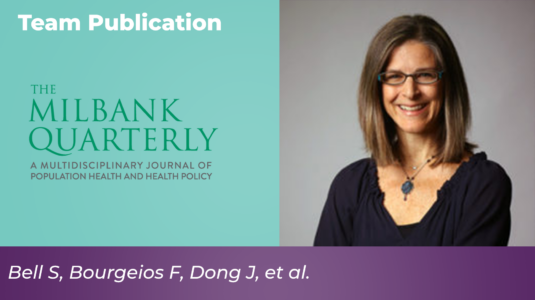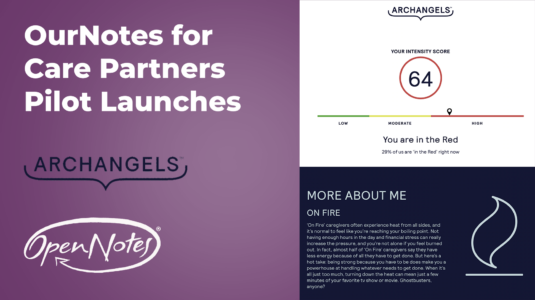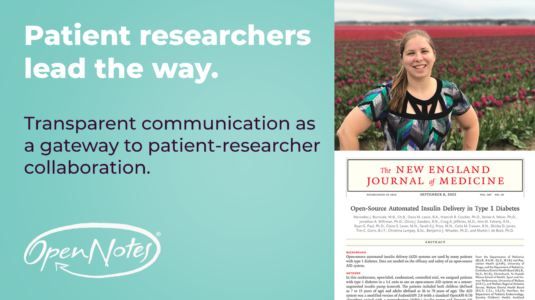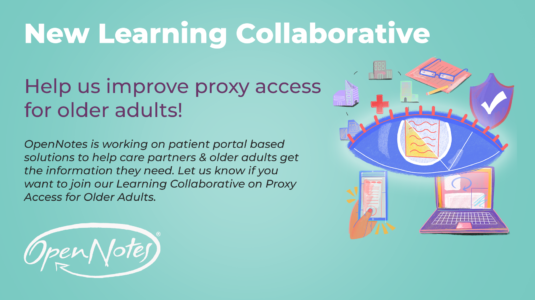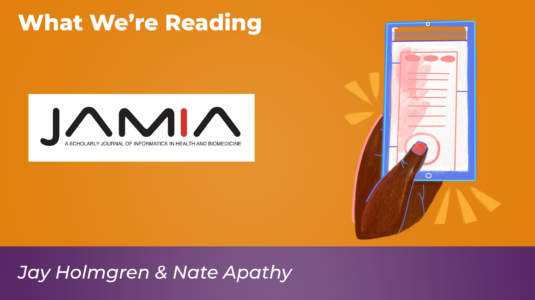Researchers in the UK say patients have little choice but to be more self-reliant due to overwhelming demands on the health system. Ready online access to full health records could help and may also reduce demand.
featured
Patient identification of diagnostic safety blindspots and participation in “good catches” through shared visit notes
A new study from OpenNotes shows patients and families who read open notes hold unique insights and can catch potential safety hazards that are difficult for clinicians or organizations to see.
Deciding on my dimples
OpenNotes advocate/researcher Liz Salmi describes a high-stakes decision she made in collaboration with her neurosurgeon during awake craniotomy.
OurNotes for Care Partners Pilot Launches
Care partners are a critical, though informal, part of the healthcare system but are often not well supported by formal structures. OurNotes for Care Partners aims to identify care partners, assess their needs, and offer practical resources to alleviate stress and offer support through the Caregiver Intensity Index.
Patient researchers lead the way
This work is in and of itself important. But we’re excited also by the transparent, collaborative partnership that Lewis formed with traditional/academic investigators. It offers a glimpse into the future evolution of important healthcare scholarship. Both the leadership and design principles behind the CREATE Trial signal a remarkable change in the culture of research.
Fall Meeting: Shared Access to the Patient Portal for Older Adults
OpenNotes is working on patient portal based solutions to help care partners & older adults get the information they need. We’re excited to invite other collaborators to join us in this effort.
In anticipation of sharing pediatric inpatient notes: Focus group study with stakeholders
Distinct themes identified as benefits of pediatric inpatient Open Notes for parents emerged from all the 5 focus groups. These themes were communication, recapitulation and reinforcement, education, stress reduction, quality control, and improving family-provider relationships. Challenges identified included burden on provider, medical jargon, communication, sensitive content, and decreasing trust.
Assessing the impact of patient access to clinical notes on clinician EHR documentation
Using a national, longitudinal data set consisting of all ambulatory care physicians and advance practice providers using an Epic Systems EHR, we used an interrupted time-series analysis to evaluate the immediate impact of the policy change on clinician note length and time spent documenting in the EHR. We found no evidence of a change in note length or time spent writing notes following the implementation of the policy, suggesting patient access to clinical notes did not increase documentation workload for clinicians.
Shared access to patient portals for older adults: Implications for privacy and digital health equity
This viewpoint article discusses challenges and opportunities of systematic engagement of care partners through shared access to the patient portal that have been amplified in the context of the COVID-19 outbreak and recent implementation of federal information blocking rules to promote information transparency alongside broader shifts toward care delivery innovation and population aging. We describe implementation considerations and the promise of granular, role-based privacy controls in addressing the nuanced and dynamic nature of individual information sharing preferences and fostering person- and family-centered care delivery.
Negative Patient Descriptors: Documenting Racial Bias In The Electronic Health Record
We found that Black patients at an urban academic medical center had disproportionately higher odds of negative patient descriptors appearing in the history and physical notes of their EHRs compared with White patients. This difference may indicate implicit racial bias not only among individual providers but also among the broader beliefs and attitudes maintained by the health care system. Such bias has the potential to stigmatize Black patients and possibly compromise their care, raising concerns about systemic racism in health care.
